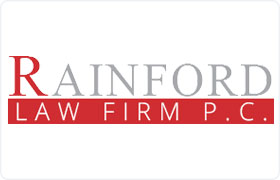Lawrenceville Bankruptcy & Debt Lawyer, Georgia
Sponsored Law Firm
-
 x
x

Click For More Info:
-
Rainford Law Firm P.C.
4920 N Henry Blvd. Stockbridge, GA 30281» view mapBankruptcy & Debt Law Experienced Bankruptcy & Debt Lawyer
Regardless of your situation, Attorney Chalcia Rainford is more than happy to guide you in the direction that will be most beneficial for you!
800-632-9140
Stephen Francis Suarino
✓ VERIFIEDAccident & Injury, Bankruptcy & Debt, Divorce & Family Law, Criminal
Stephen Suarino is an Immigration, Real Estate, Accident & Injury, Estate, and General Practice lawyer in Norcross, Georgia.
M. Kathleen Hart
Intellectual Property, Science, Technology & Internet, Business Organization, Collection
Status: In Good Standing
FREE CONSULTATION
CONTACTFREE CONSULTATION
CONTACTAdriana Salcedo Moore
Family Law, Immigration, Credit & Debt, Social Security
Status: In Good Standing Licensed: 19 Years
Jerry Arlen Daniels
Family Law, Criminal, Bankruptcy & Debt, Accident & Injury
Status: In Good Standing
Tracy Lynn Lettsome
State & Local Agencies, Divorce & Family Law, Bankruptcy & Debt, Eminent Domain
Status: In Good Standing Licensed: 29 Years
 Chalcia Rainford Stockbridge, GA
Chalcia Rainford Stockbridge, GA AboutRainford Law Firm P.C.
AboutRainford Law Firm P.C. Practice AreasExpertise
Practice AreasExpertise

